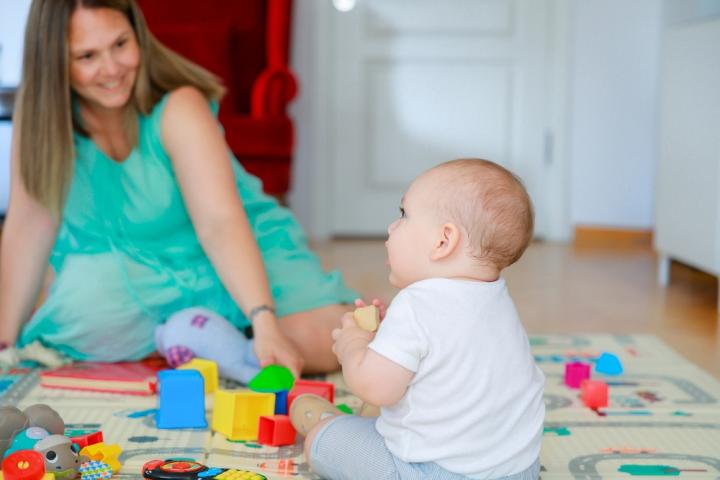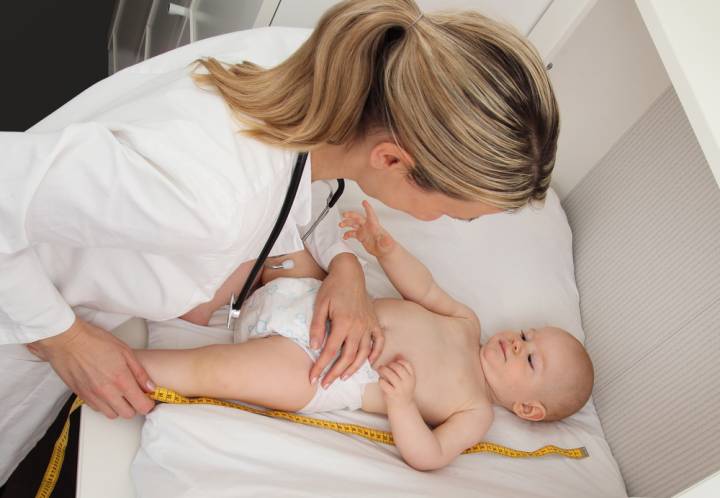
Your bundle of joy has just been with you for a month, and you're on a roller-coaster trip to find out the finest one-month newborn parenting tips. When your kid is one month old, all of his or her body systems are still growing, making it tough to imagine how they will respond. Definite sleep habits take time to develop, and some newborns may choose to sleep during the day, keeping them awake all night. They also require regular feedings, which can be difficult to schedule. Continue reading this post for some useful tips on how to care for your one-month-old baby and guarantee their safety and appropriate growth.
You know breastfeeding is beneficial for your one-month-old baby:

Breast milk provides the finest nutrition for newborns. It has an essentially perfect balance between vitamins, proteins, and fat for your baby's growth. In addition, it is all delivered in a more digestible form than milk for babies. Antibodies contained in breast milk help your newborn fight infections and viruses. Breastfeeding reduces your baby's chances of getting asthma or allergies. Furthermore, newborns who are nursed exclusively for the first six months, without taking advantage of formula, have fewer ear infections, respiratory disorders, and diarrhea bouts. They also go to the doctor and the hospital fewer times.
You know breastfeeding is beneficial for new moms also:

Breastfeeding burns more calories, accelerating your postpartum weight loss. It increases the manufacture of the hormone oxytocin, which assists in the return of the uterus to pre-pregnancy size and may minimize postpartum uterine hemorrhage. Breastfeeding has advantages that last up to two years, especially for the mother. Nursing reduces the risk of breast and ovarian cancer. As a consequence, you may be less prone to osteoporosis.
Understand the sleep signs and allow them to sleep:

Understanding a one-month-old baby's sleep patterns is equally important. Their sleeping patterns are erratic, and they tend to sleep at any time of day. Allow your one-month-old child to sleep whenever they want. Pay attention to your baby's sleep cues. Most newborns fall asleep shortly after their meal. When your baby has finished nursing, place them in their cradle.
Interact and play with the baby:

Interact with your precious child while they are awake. Call out the baby's name. Play some music to get their attention. Allow your baby to do some supervised tummy time activities every day to help them build upper body and neck strength. You should only place your newborns on their tummies for a brief period of time since they are too young to stay longer. You may also provide them with colorful and sound-producing toys to keep them entertained. Rattles, teethers, and baby crib toys are all excellent ways to occupy and connect with your child. Make sure that no toys or playthings are left in the cot while the infant is napping or unaccompanied.
Make certain that they are safe:
Place your baby's cot in a secure area in your room, away from the window, so that rain, dust, and other factors will not damage your newborn. Avoid putting toys or other things inside the cot. When your baby is on the sofa or changing table, keep one hand on them at all times since energetic newborns might wriggle and move and require attention. Use a safety harness whenever you have your baby in a pram to protect their safety. Also, avoid carrying your infant in one arm since they are too little to support their own neck. Hold and carry your child with both hands.
Ensure medical attention:

It is critical to schedule their required immunizations as part of baby care. Within a month after their birth, your baby will be due for their first immunization. So, to be prepared, find out which immunizations your baby will require. If you have any queries, your pediatrician is a terrific resource. Limit your baby's exposure to infections by requiring others not to kiss or touch him or her without first washing their hands. Babies do not yet have a strong enough immune system, thus they are more susceptible to illness. Before handling your infant or their food and drink, always wash your hands. To avoid diaper rash, constantly clean the diapering region and change their diapers on a regular basis.
Q.1 What can one-month-old newborns see?
Ans. Babies have a limited capacity to focus on distant objects at one month of age, but they can see things up close. They also start to be able to track moving things with their gaze and reach for them.
Q.2. Is it possible for a one-month-old newborn to smile?
Ans. Around 12 weeks, the infant begins to smile in response to various social cues. They may grin in reaction to seeing their mother's face or hearing the voice of a sibling.
Q.3. A one-month-old can sleep for how long without eating?
Ans. Newborns need to be fed every three to four hours. It is critical to feed them in order for them to grow and develop properly. As a result, in the first five to six weeks, a newborn should not sleep for more than five hours.